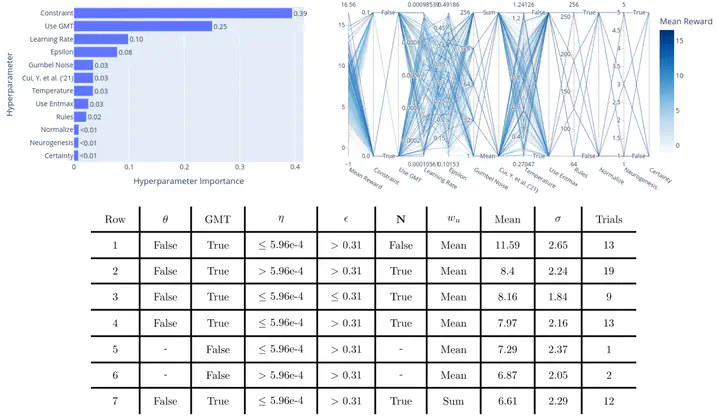Gradient-Based Neuroplastic Adaptation for Concurrent Optimization of Neuro-Fuzzy Networks

Abstract
Neuro-fuzzy networks (NFNs) are transparent, symbolic, and universal function approximators where knowledge is in the form of linguistic IF-THEN rules while retaining the performance of conventional neural architectures. However, meticulously designing a NFN prior to its training is a significant burden and hurdle, which prevents widespread adoption of this remarkable universal function approximation technique. This dissertation proposes a novel application-independent approach called gradient-based neuroplastic adaptation for the concurrent optimization of NFNs’ parameters and structure. By recognizing that NFNs’ structure and parameters are deeply conjoined and should be optimized simultaneously, settings that were previously unapproachable for NFNs are now accessible, such as the online reinforcement learning (RL) of NFNs for vision-based tasks. In the event unrecognized percepts are encountered, this dissertation also proposes epsilon-delayed neurogenesis to automatically generate new symbols as needed. Thus, the framework is able to create new symbols, or words, as necessary which directly relate to the received percepts. Concurrent optimization simultaneously fine-tunes the mathematical formula behind the words’ relationship with their associated percepts while also determining the ideal word combination to form linguistic descriptions of possible percepts. These linguistic descriptions are then paired with a corresponding decision, and how strongly the decision is recommended is determined by how well the linguistic description describes the percept stimuli. The effectiveness of concurrently optimizing NFNs with online RL is empirically shown as it proficiently plays challenging scenarios from a vision-based video game called DOOM.